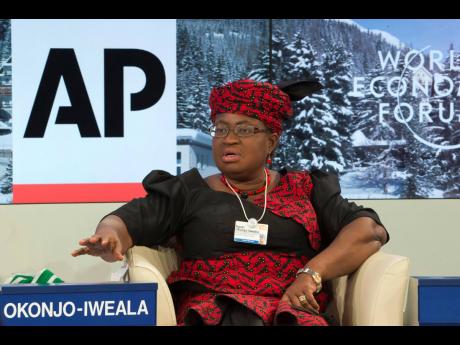Elizabeth Morgan | WTO 13th Ministerial Conference (MC13) – Can results be delivered?
The 13th Ministerial Conference of the World Trade Organization (WTO MC13) will be held at the Abu Dhabi National Exhibition Centre, Abu Dhabi, United Arab Emirates, from February 26-29.
The last meeting, MC12, was held at the WTO Headquarters in Geneva, June 12-17, 2022. I addressed the MC12 outcome in my article of June 22, 2022 titled ‘WTO MC12 – Consensus secured’. The major outcome was the adoption of the Agreement on Fisheries Subsidies.
For this Fisheries Subsidies Agreement to enter into force, it requires ratification (acceptance) by two-thirds of the 164 members, which is 123. Up to December 2023, only 51 members (46 per cent) had ratified, including only two CARICOM countries – Belize and Saint Lucia.
Preparations for MC13 have been in progress since last year with the hope that there will be further progress at this meeting. Reports of progress to date are not so encouraging, as the WTO remains quite dysfunctional.
In fact, the projections for growth in global merchandise trade for 2024 is not looking so healthy and there is concern that countries could be resorting to more protectionist policies as geopolitics continue to negatively impact the global economy.
At the meeting of the WTO Trade Negotiations Committee in December 2023, the Director-General Ngozi Okonjo-Iweala noted that the world economy was not in good shape and people were bearing the brunt of slow growth, volatile prices, climate impacts, and debt pressures. In this situation, she stated, the WTO members had a responsibility to contribute to efforts to reinvigorate growth and opportunities for people everywhere.
For this reason, MC13 had to be substantive and meaningful with concrete results. She welcomed that stakeholders increasingly understood that trade is part of the solution for many contemporary global challenges. The onus is thus on the WTO to deliver results.
ISSUES AT MC13
Issues to be considered at MC13 will include:
1. Fisheries subsidies – The ratification of the agreement and continuing negotiations on outstanding matters on subsidies contributing to overcapacity and overfishing in the global fishing industry and the application of the agreement to developing countries, that is, provisions for special and differential treatment.
2. Agriculture – addressing the outstanding issue of public stocktaking and subsidies for food security which is an issue of interest to India and other developing countries.
3. Moratorium on customs duties – this relates to customs duties on electronic transmissions. A number of members want the moratorium lifted, not renewed.
4. Services and investment facilitation – these are two plurilateral agreements on regulation of domestic services and on investment facilitations for adoption. Plurilateral means that they were not negotiated by all WTO members, but only by those interested. This has become controversial, as some members now question whether plurilateral agreements are appropriate in the WTO.
5. WTO reform – which includes dispute settlement and development, including special and differential treatment. This has remained an informal process, even as all members are calling for reform.
6. Trade and environment – there should be discussions on sustainable trade, including climate change related issues and use of plastics. A trade day was held at the UN Climate Change Conference (COP 28) last year involving the WTO, the UN Conference on Trade and Development (UNCTAD), and the International Trade Centre (ITC).
7. Integrating small economies into the multilateral trading system – a draft decision will call for WTO members to address the issue of integrating small economies into the multilateral trading system by looking into issues, such as the impact of non-tariff measures on trade costs, the link between trade policies and climate change adaptation, global supply chains, e-commerce and digital ecosystems.
Since the creation of the WTO in 1995, its ministerial conferences, which are to be held every two years, have been very difficult and contentious. Since the launch of the Doha Round in 2001, success has been very limited.
Trade is supposed to be a key factor in the process of achieving sustainable development and in leading the world into economic growth and making the green transition, but there is concern that MC13 will be another difficult/contentious session with limited to no success.
Elizabeth Morgan is a specialist in international trade policy and international politics. Email feedback to columns@gleanerjm.com

